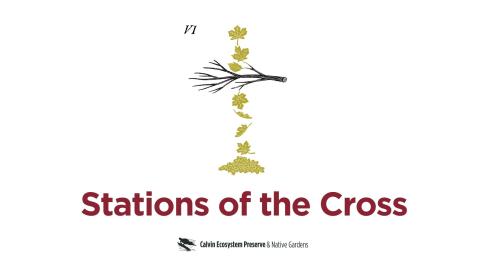-
Megamenu academics card (Card) - 732923912
Image Megamenu academics card
Megamenu academics cardYour Calvin education will inspire awe, broaden your perspectives, and prepare you to change the world.
-
Megamenu admissions card (Card) - 2096363193
Image Megamenu admissions card
Megamenu admissions card -
Megamenu research card (Card) - 196901389
Image Megamenu research card
Megamenu research cardTeam up with professors on cutting-edge research.
-
Megamenu arts card (Card) - 1818496937
Image Megamenu arts card
Megamenu arts cardNo matter your major, you can take part in the arts at Calvin.
-
Megamenu athletics card (Card) - 1449514921
Image Megamenu athletics card
Megamenu athletics cardFearlessly pursue excellence on the field and the court; in the gym and the crowd.
-
Megamenu life card (Card) - 1954164671
Image Megamenu life card
Megamenu life cardOur vibrant community embraces your curiosity and supports you as you grow into the life that God wants for you.
Events Calendar
Feb 18–Apr 05, 2026
Stations of the Cross
Ecosystem Preserve walking trails
During Lent through Easter Sunday, we invite you to engage “Stations in the Street” by Scott Erickson for reflection. Walk and pray through the stations of the cross on the trail between the south pond trail and the arbor overlook.
Mar 02–Apr 18, 2026
The Art of Scott Erickson
Center Art Gallery
Free
In partnership with the Festival of Faith and Writing, the Center Art Gallery brings you select works of Scott Erickson.
Mar 05, 2026
International Admitted Student Webinar
8:00 am–9:00 am
Online
Our international admissions team is excited to host weekly webinars for admitted students to talk about the steps to complete the enrollment process. With time for questions!
Mar 05, 2026
Chat with an International Student: Elyse Caton
10:00 am–11:00 am
Online
Ask questions, learn about their journey—anything you're wondering about Calvin. They are available for the full hour, but you may join the chat anytime.


Mar 05, 2026
Route 66 Dinner at Commons Dining Hall
5:00 pm–8:00 pm
Commons Dining Hall
1 Meal Swipe, $8 for Faculty/Staff, or $17.50 Walk-In Rate
Route 66, established in 1926, grew into one of America’s most iconic highways—stretching from Chicago to Santa Monica and symbolizing exploration and freedom. Over the decades, it shaped local culture and earned its nickname, “The Mother Road.” Take a trip down Route 66 with Dining Services to explore classic American dishes!

Mar 05, 2026
Calvin on the Road: Long Beach, CA
6:45 pm–10:00 pm
Aquarium of the Pacific
$15 per person
Celebrate 150 years of Calvin in Long Beach!







